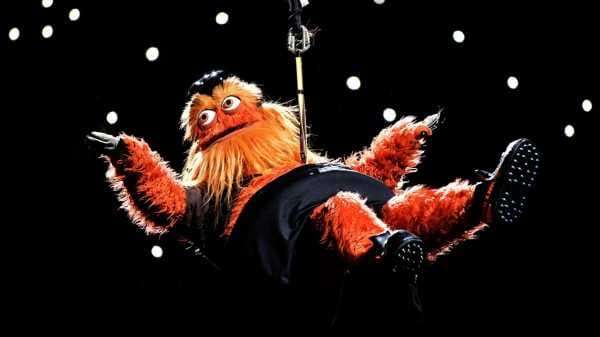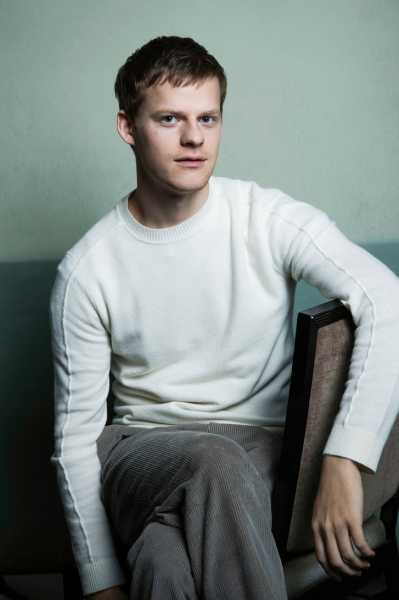
This year, like the year before it, was a rough one for the reputation of the American male. Those wondering how we could achieve a more just and healthy society continued to have a hard time believing that men would be involved. This distrust was fomented, first and foremost, by the President—his bluster a cover for moral compromise, his bombast a mask for weakness—and by his henchmen, whose unjust policies often felt inseparable from their bullying maleness. It came from the continuing allegations of serial sexual assault against high-powered men like Leslie Moonves and Harvey Weinstein. The outsized self-delusions of tech moguls like Elon Musk also contributed to the sense that masculinity was in crisis. But even the men who reject such figures as models and treat women, as well as other men, with respect; who don’t believe that domination over the less powerful is their birthright; who aren’t, in the recent words of Bruce Springsteen, “locked into a 1950s sensibility of manhood”—these men, too, likely felt themselves tarnished, if only by dint of association. So, in the spirit of good will and charity, and in the interest of keeping hope alive, I’ve pored over the data and dug up a smattering of men who didn’t do so horribly this year.
One man we loved to love was Gritty, the new mascot of the Philadelphia Flyers, the city’s hockey team. This viral sensation has brought so much joy to our lives since his début, in September, that it’s difficult to believe that, mere months ago, we were Gritty-less. The instantly meme-able monster physically resembles Animal, the out-of-control drummer from “The Muppet Show,” crossed with the stolidly barrel-shaped Homer Simpson. Done up in the Flyers’ team colors, black and orange, with his long, shaggy fur, convulsive dance moves, and round, googly eyes never not caught in mid-wobble, Gritty is part cute stuffed toy, part barely repressed hurricane. According to the Gritty origin story on the N.H.L.’s official Web site, the “recent construction at the Wells Fargo Center disturbed his secret hideout,” and forced him into the outside world. And what luck for us. Gritty is magic because he is pure male id, but without any of the menace—his belligerent gestures so theatrical and over-the-top as to be lovable. (As the N.H.L. site reveals, “A number of times, he has been caught eating snow straight off the Zamboni machine.” He can’t be stopped!) In one much-shared sequence, Gritty entered the first home-game of the season by rappelling into the arena to the poignant tune of Miley Cyrus’s power ballad “Wrecking Ball.” In the song, Cyrus croons, “We kissed, I fell under your spell / A love no one could deny.” What a relief to finally encounter a man who, with every gesture of his herky-jerky, fuzzy body, was not afraid to express emotions that were both true and sensitive.
My obsession with Gritty is about as far as my grasp of sports reaches, but I do know that LeBron James is currently, as my colleague Vinson Cunningham has written, “the best basketball player in the world.” Even beyond James’s skills on the court, 2018 was a big year for him. He announced that he was leaving the Cleveland Cavaliers for the Los Angeles Lakers, on a four-year contract; his half-hour show, “The Shop,” which features him bantering in a barber shop with a number of other male celebrities—a relaxed megastar among slightly lesser constellations—premièred on HBO; and, in an interview with Don Lemon, on CNN, he bluntly criticized Donald Trump’s divisive use of sports and said that he would not sit across from the President for a conversation. (“I’d sit across from Barack, though,” he said.) James was keeping to the path that he embarked on in 2017, when Trump personally attacked the basketball player Stephen Curry for indicating his aversion to visit the White House, and James stood up for him, referring to Trump on Twitter as “u bum.” (In a way, the tweet anticipated the social-media activism of another man, Axl Rose, who, over the past year, has been expressing his anti-Trump views forcefully and impressively on his own feed.) Most important, in his interview with Lemon, James also announced the opening of a public elementary school in his home town of Akron, Ohio, funded by his family foundation, and chiefly serving at-risk children. With this, he not only put his money where his mouth is, but demonstrated how to extend one’s individual power and wealth to make a struggling community more robust.

The actor Lucas Hedges has played a handful of slender, complex, and tortured boys.
Photograph by Amy Sussman / Invision / AP / Shutterstock
This year, we also witnessed the continued cultural ascendance of the figure of the sensitive teen-age boy. Teen girls have long been portrayed in fiction as in touch with their feelings. (With the recent shuttering of Tavi Gevinson’s online magazine, Rookie, we have lost an important outlet for real-world teen-girl expression.) Until recently, a young male protagonist was expected to be brash, or at least stoic. But in some of this year’s movies and TV shows, teen boys were seen waffling between choices, wallowing in introspection, and shrugging off any will to power, tendencies that are more endearing in teen-agers than in adults. Perhaps the most prominent embodiment of this phenomenon is the actor Timothée Chalamet, who gained recognition in 2017 for his breakout roles in “Lady Bird” and “Call Me by Your Name,” and who, in 2018, came into his own as the fine-boned, gentle-eyed protagonist of “Beautiful Boy,” a melodrama about a father’s struggle to care for his meth-addicted son. The actor Lucas Hedges also played slender, complex, and tortured boys: in “Manchester by the Sea,” from 2016; “Lady Bird” and “Three Billboards Outside Ebbing, Missouri,” from last year; and in three films in 2018, “Mid90s,” “Ben Is Back,” and “Boy Erased.” The character Andrew Glouberman, a thirteen-year-old voiced by John Mulaney on “Big Mouth,” a brilliant animated Netflix series about puberty, was equally complex. Though he is endlessly horny and endlessly self-flagellating (one plot point focusses on his attempts to navigate his guilt at feeling attracted to a girl he doesn’t actually like), Andrew is always battling to become a better, more moral, but no less amorous, man. In a year rocked by the Brett Kavanaugh affair, which reminded us of the oppressive privilege of white, male teens, it was exciting to view a few possible alternatives.

The Mandarin duck was first spotted in Central Park in October.
Photograph by Eduardo Munoz Alvarez / Getty
The animal kingdom, too, provided us with at least a couple of examples of good males in 2018. And, yes, I mean whom you think I mean—the hot duck of Central Park, and the oversized Holstein steer of Australia. The Mandarin duck, a stunning, multicolored specimen native to East Asia—it is still unclear how he made his way to the city—was first spotted in the park in October, and has since become an attraction for both out-of-town tourists and locals, many of whom know where to find him based on the ornithology Twitter account @BirdCentralPark. (My Instagram feed, over the past couple of months, has been crowded with pictures that friends took on their pilgrimages to see the duck, in his jaunty greaser’s quiff and vaguely Southwestern color scheme—turquoise, blue, brick red, tan.) The large steer, named, somewhat heartrendingly, “Knickers,” had a briefer moment in the sun when, in November, a picture of him towering over a group of much smaller cows on a farm south of Perth went viral. What these two share—and what we humans can learn from them—is an essential humility. Knickers is six feet four, and looks, in the picture, like he could clobber his bovine brethren. But instead, he hangs back, appearing a little abashed and a little out of place. (Looking at the picture, my heart went out to him. “I’ve been there, buddy!” I wanted to say.) Meanwhile, the beauty of the Mandarin duck lies not just in his vibrant coloring or pleasingly sleek shape, but in his apparent lack of awareness of these gifts. He paddles along, or grooms himself, or sleeps, guileless and unaffected, as hundreds of looky-loos huddle around him, iPhone cameras clicking. If only every powerful man could be this self-effacing.
A few brief honorable mentions: the comedian Billy Eichner, of the TV show “Billy on the Street,” for his endearingly shouty, half nervous, half nervy approach to interviewing; the rapper Meek Mill, who focussed his efforts this year on criminal-justice reform; and the food writer and TV host Anthony Bourdain, who died this year, and who might have been the quintessential good man—one who, in the words of my colleague Helen Rosner, “built his career on the telling of truth.” May his memory show us all the way in the year to come.
Sourse: newyorker.com






